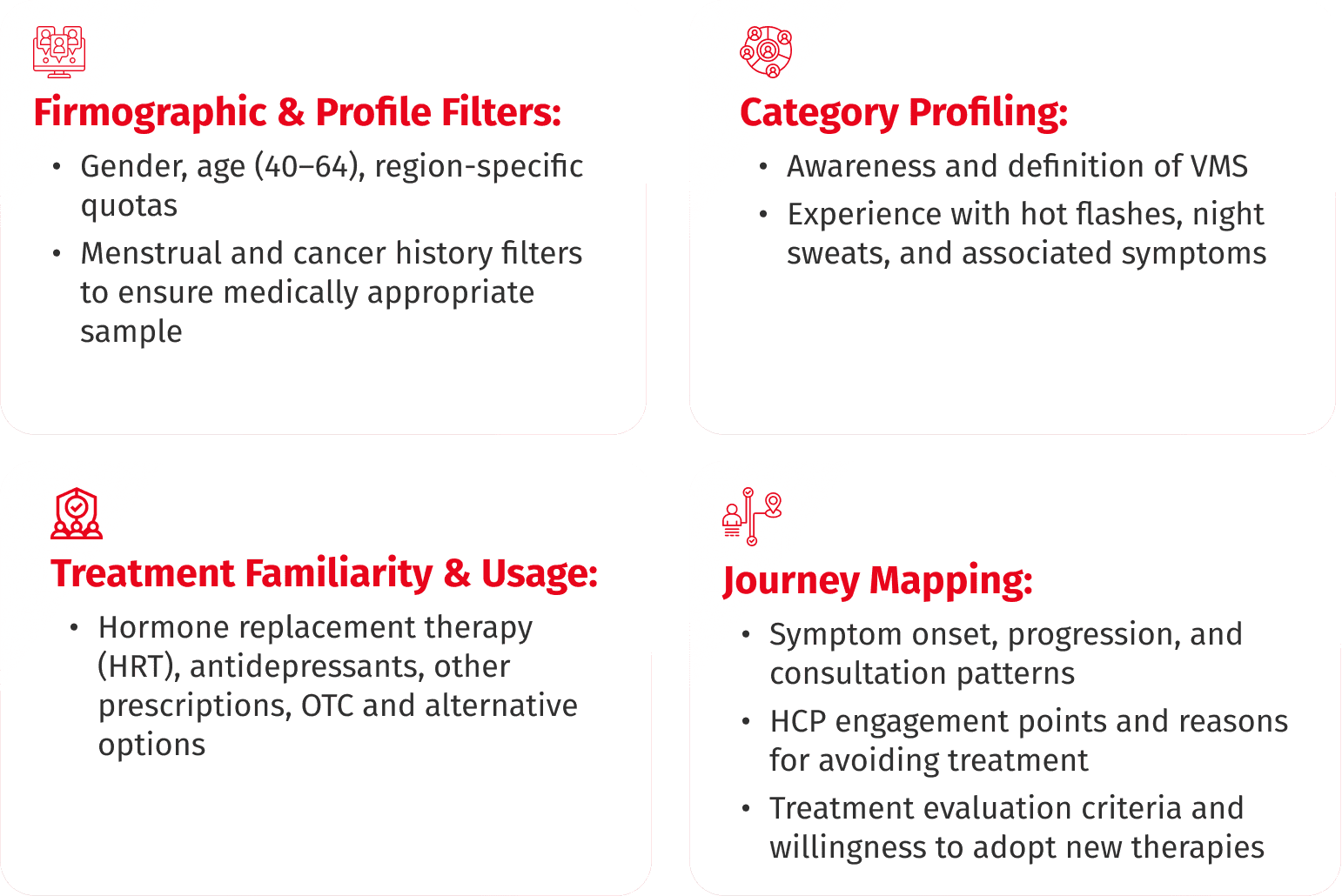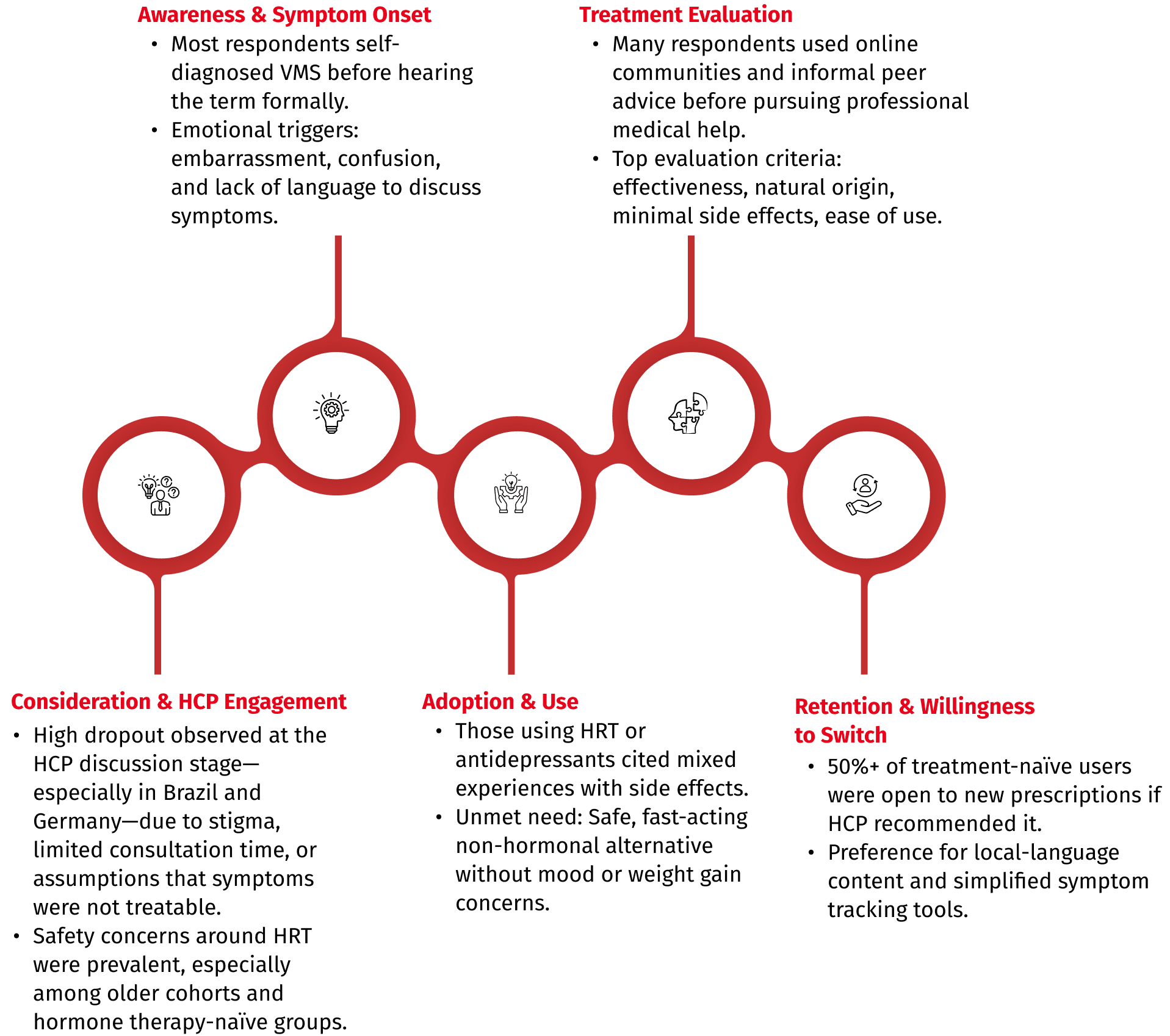
Healthcare
Health Policy Influencer Message Testing


A global biopharma brand sought to understand the lived experiences, medical perceptions, and treatment journeys of menopausal women (aged 40–64) across diverse global markets. The goal was to inform future launch strategies for a novel non-hormonal prescription treatment targeting Vasomotor Symptoms (VMS)-particularly hot flashes and night sweats
Multi-Method Strategy
Vertically Integrated Operations
Jasper Colin managed end-to-end execution, from respondent validation to digital tracking overlays- ensuring accuracy, speed, and alignment with health outcomes strategy teams.
1. Immersion & Kickoff
2. Stakeholder Interviews
3. In-Depth Interviews Across Patient Profiles
Spoke with symptomatic women across various regions to explore:
4. Customer Intelligence Audit
5. Quantitative Journey Survey


By applying our enterprise customer journey mapping solution, the brand was able to see beyond demographics- identifying emotional inflection points, behavioral resistance, and cultural nuance in the journey from symptom to solution.
This ensured not only higher trial potential, but better long-term patient engagement and therapeutic confidence at scale.